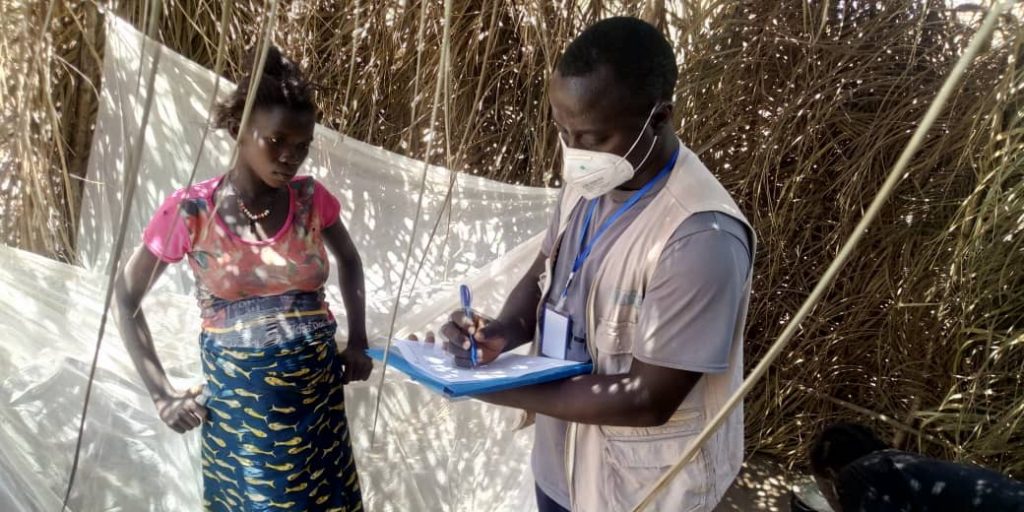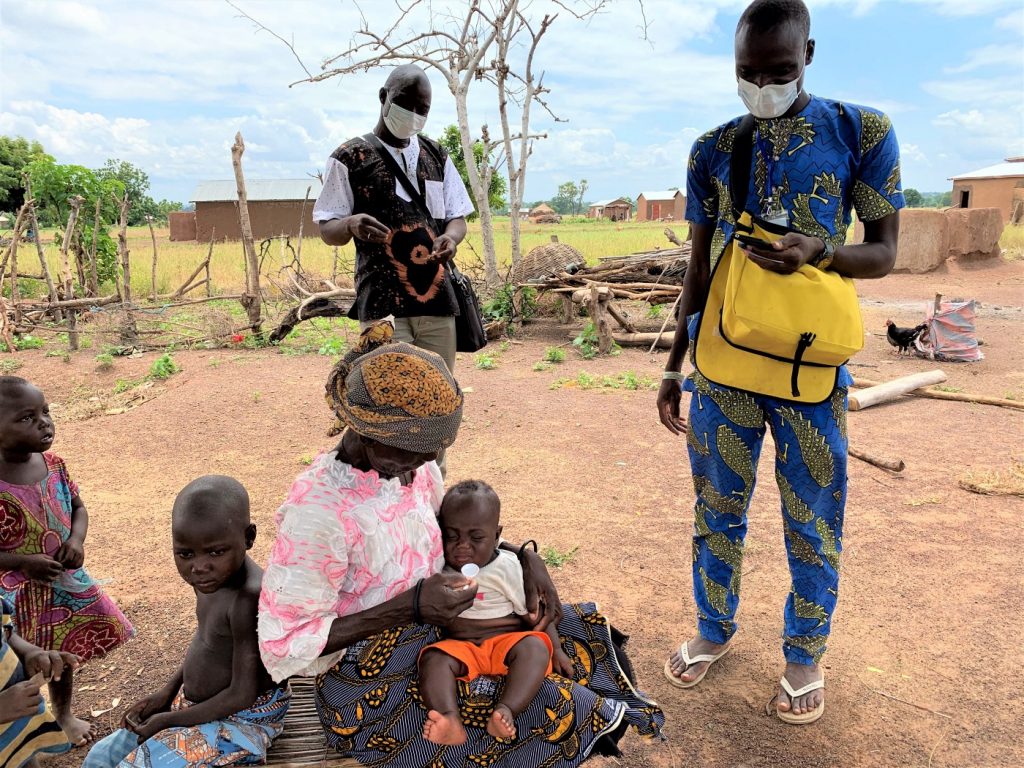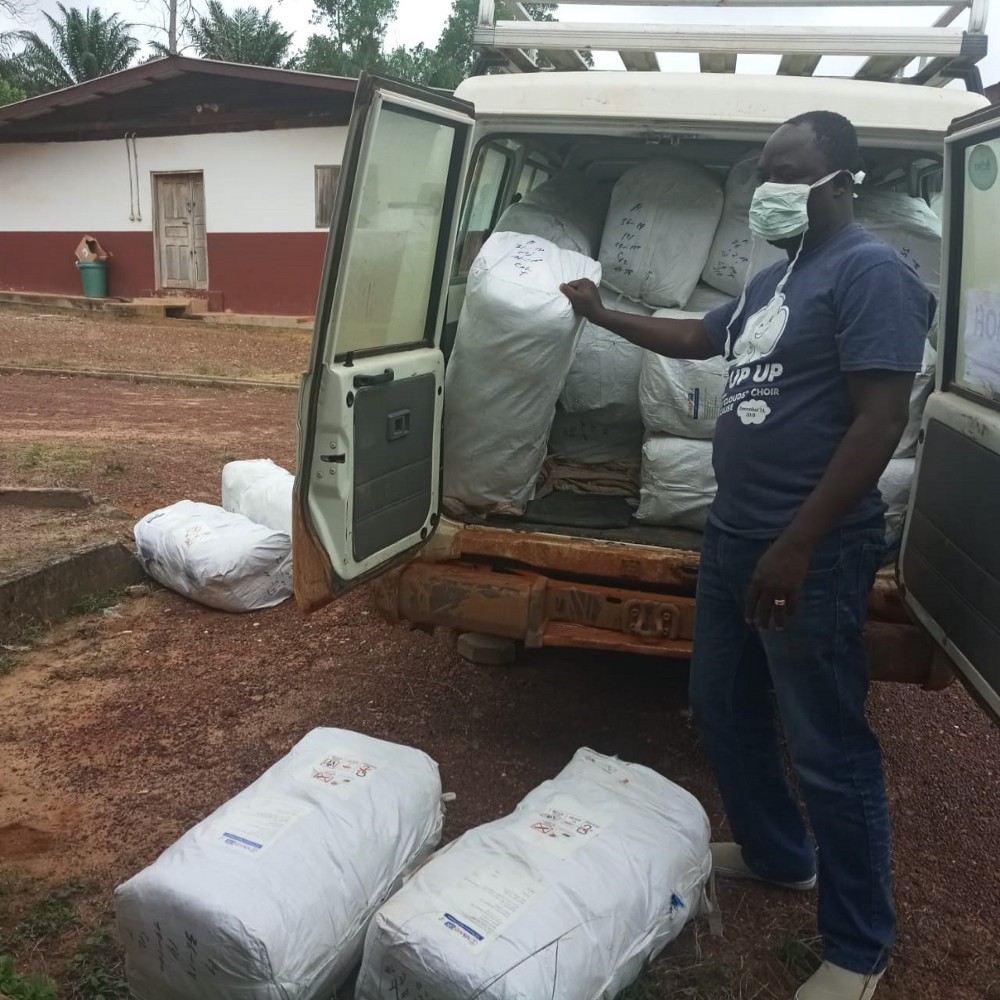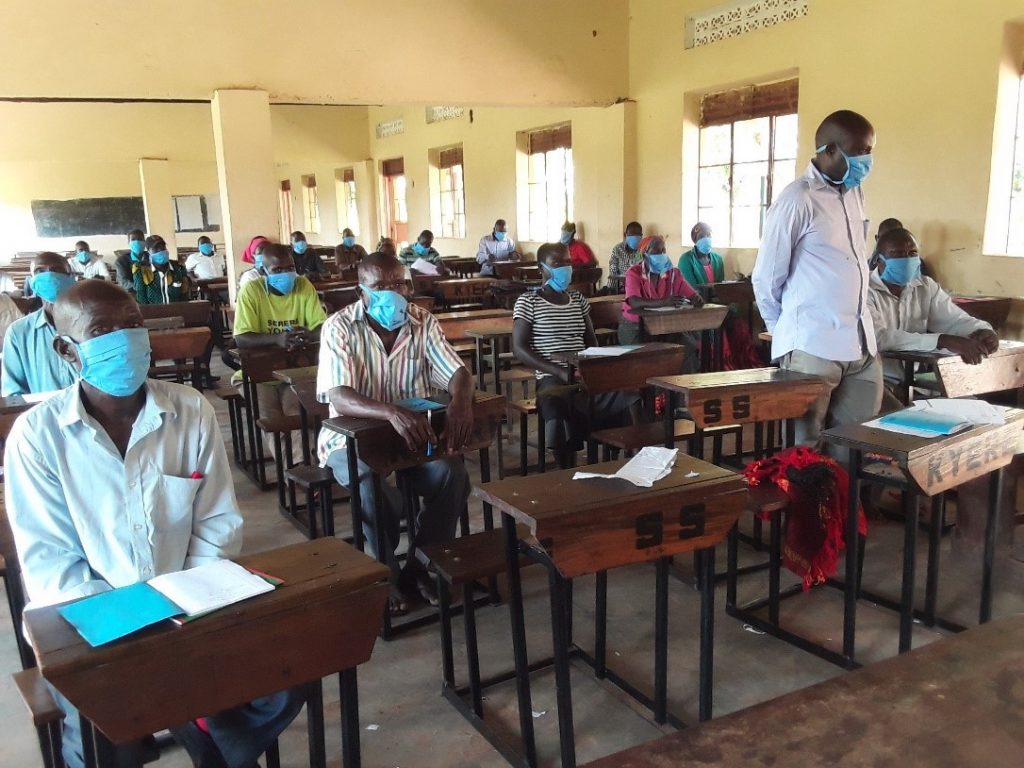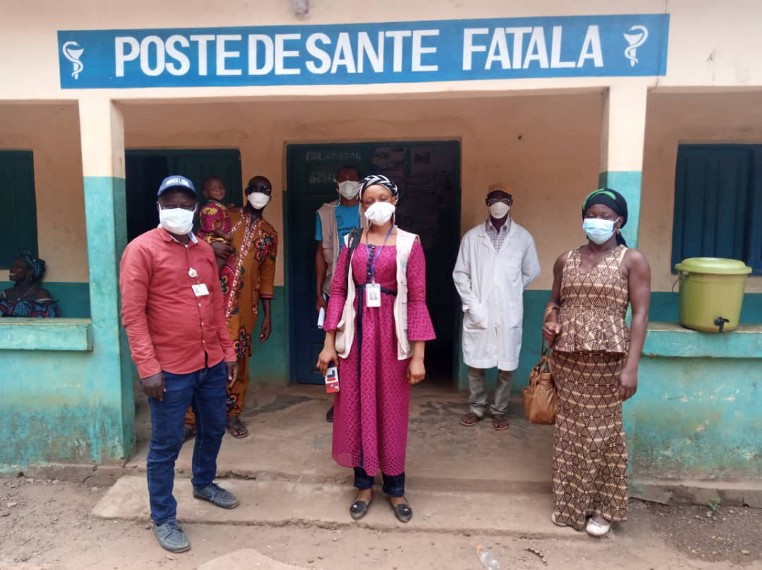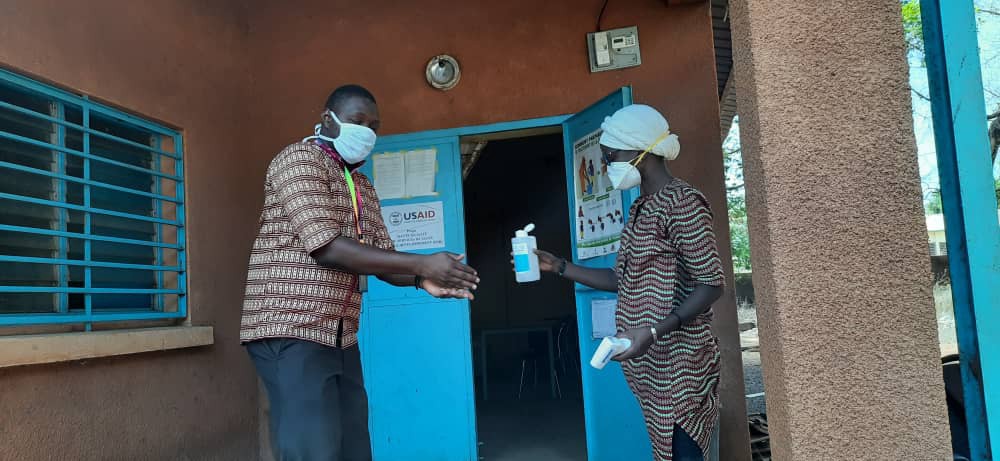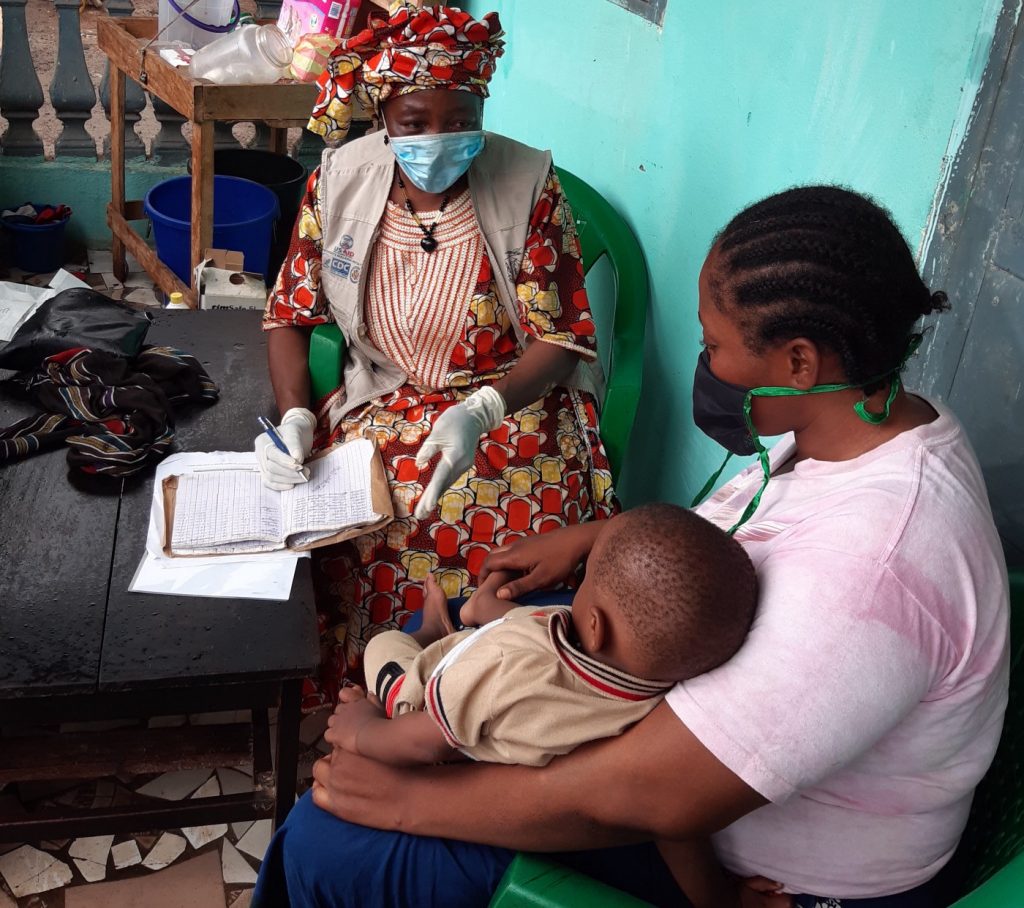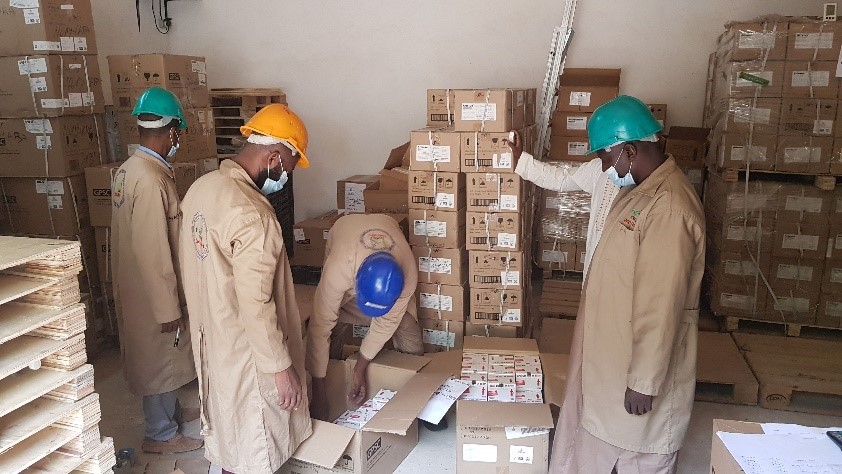Hand washing, mask wearing, and social distancing might help protect families from COVID-19, but it won’t protect them from the world’s deadliest animal.
Mosquitoes don’t disappear during a pandemic. And about half of the world’s population lives in an area where a mosquito bite could lead to malaria, which keeps kids out of school, parents out of work, and killed 405,000 people in 2018.
Shortly after COVID-19 was declared a pandemic, global health experts modeled its potential impact on malaria programs — and the projections weren’t good.
The modeling suggested that if COVID-19 were to significantly disrupt prevention campaigns and access to antimalarial medicines, malaria deaths could double in 2020 and wipe out decades of hard-fought progress. A major spike in malaria cases could also overwhelm health systems in malaria-affected countries and compromise their ability to effectively respond to COVID-19.
The good news is that projections aren’t destiny. Thanks in large part to financial support and technical guidance from the U.S. President’s Malaria Initiative (PMI), our partner countries are continuing their malaria prevention campaigns.
To be effective, these campaigns must be timed with respect to the rainy season when mosquitoes start to proliferate — so significant delays are not an option. These life-saving activities are complex endeavors under normal circumstances, and we as PMI are proud to have helped them continue during this global crisis.
Distributing bed nets. All 10 of our partner countries’ campaigns scheduled to get free insecticide-treated bed nets into communities this season are proceeding with minimal delays. Insecticide-treated nets protect sleeping families by creating a physical barrier from mosquitoes and killing the mosquitoes that land on the net. These nets will protect approximately 78.7 million people from malaria for the next three years. Five additional countries’ net campaigns planned for later in the year are on track.
Spraying homes with insecticides. Eight of nine countries’ indoor residual spraying (IRS) campaigns to kill mosquitoes are complete or underway. During IRS, spray operators coat the inside walls and ceilings of homes with insecticides that are safe for humans but deadly for mosquitoes. These efforts will protect an estimated 9.7 million people from malaria. Additional countries will kick off spray campaigns later in the year.
Distributing preventive medicine for young children. Currently, seasonal malaria chemoprevention (SMC) campaigns are underway in all nine eligible partner countries. During these campaigns, children under 6 years of age are given antimalarial medicine at monthly intervals for three to five months during the rainy season when malaria transmission spikes. SMC has been shown to dramatically reduce malaria cases and deaths in the most vulnerable age group affected by malaria. This year’s campaigns will protect approximately 6.5 million children.
Rapid Adaptations
While there have certainly been challenges — such as increased costs to adapt programs and decreases in numbers of people seeking care for malaria — we have been successful in equipping families with proven malaria-fighting tools.
Here are a few ways we’ve adapted.
- Going door-to-door. Normally families pick up their bed nets or take their children for SMC pills at a central location in their community. In order to avoid large gatherings, campaign workers are going door-to-door to distribute the nets and pills.
- Leveraging technology. In order to reduce travel and in-person gatherings, mobile and digital platforms have allowed for remote training and supervision of frontline workers.
- Spreading out. When in-person training of campaign workers is necessary, the trainings are spread out over several sessions so fewer people attend each class and they sit farther apart from each other.
- Promoting safety and hygiene. Frontline workers have access to cloth face coverings, hand sanitizer, and additional handwashing stations. This required rapid coordination with local governments to ensure that supplies were in place. Posters, text messages, and job aids at meetings also remind campaign workers to take COVID-19 precautions.
- Communicating with communities. With prevention campaigns having to look a little different this year, it has been important to make families in affected areas aware of the changes through radio ads, town criers, and more.
- Minimizing supply chain disruptions. Lockdowns have led to production and transportation delays in many sectors around the world. We’re working with manufacturers and logistics providers to help ensure essential malaria supplies — nets, spray equipment, medication — are available when and where they’re needed most.
Looking Ahead
Time will tell how many malaria cases we’ll be able to prevent, and what happens in the coming months will be critical. We’re closely monitoring the malaria data and the COVID-19 situation in PMI partner countries.
In the meantime, we’re inspired by our partner countries’ resilience and creativity in this dual fight against malaria and COVID-19 — and we’re optimistic that together we can win both.
A version of this story originally appeared on Medium

